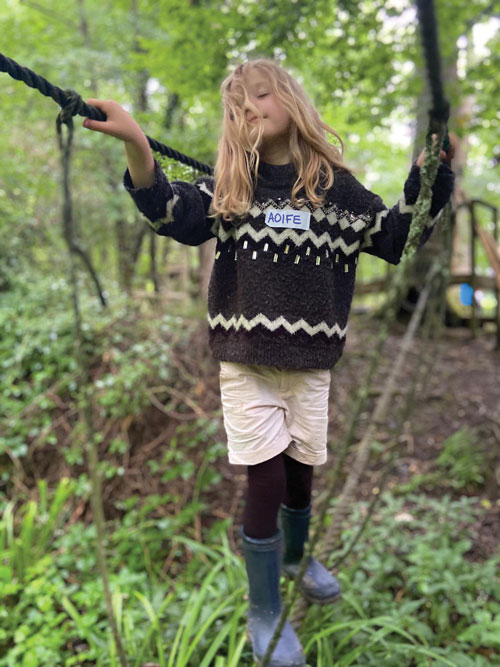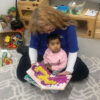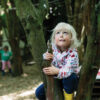
by Michelle Elman
Author, How to Say No
You will remember a time in your child’s life when “no” was their favourite word but as a child hits three to four years old, saying “no”, getting their needs met and communicating how they feel, gets a little bit more complicated. They start to develop Theory of Mind which means they start to get an awareness of the fact that not only can they think, but other people think too. Over time, this realisation turns into the knowledge that if someone can think, then they can think about you and they can also think badly about you.
As adults, you will understand that your own boundaries are usually in conflict with caring what people think, and children also suffer with the same issue, especially when popularity, fitting in and being liked by their peer group is such a high priority. This is where it is important to emphasis the need to keep boundaries in their vocabulary, starting with the simplest and first boundary we all learn – the word ‘no’.
As we all know, children don’t do as you say, they do as you do and therefore practising boundaries yourself is the best place to start to be an example to your children. Learning boundaries isn’t just something you should do for your children though, it can positively impact your life in many ways – from self-esteem, to protecting yourself from burnout, to reprioritising your need for rest and looking after your body. As much as children might struggle to do what you say, if you create an environment where everyone feels listened to, they often start to listen to you more too, if they feel heard themselves.
The word “no” is crucial to understanding how you feel, what you want and it also means that your “yes” has more power. If “yes” is the only word you can use, then that’s the default and your life becomes filled with meeting everyone else’s needs and demands. As much as a child using the word “no” may make your life more difficult as a parent, it’s important to understand that it’s a crucial skill as they grow up and become adults.
We want to foster a sense of independence and knowing how to communicate well, even if they still need to comply with the rules of the household or school. When they set a boundary that is simply not feasible, for example, staying at home alone because they don’t want to attend a family friend’s party, then you are still able to congratulate them on communicating their needs, expressing their boundaries and making them feel heard, listened to and respected.
If you lead with empathy, you are treating them with the respect you would with any adult who has their full autonomy and freedom to make their own decisions. I’m sure you’ve had evenings where you’ve not wanted to attend an event that you previously were looking forward to or there are times as an adult, you just want to be left at home alone to enjoy your solitude. For your child though, that might be unsafe and therefore communicating that to them, not only gives them respect but understanding as to the decision making process.
Saying something like “I know you don’t want to come tonight. I know you are tired and I wouldn’t want to come too if I had as long a week as you have. I can’t find anyone to stay with you last minute though and I do not feel comfortable leaving you at home alone so for your safety, you will have to come with us”. When you come from a empathetic standpoint, you can understand why a child wouldn’t want to go to a grown-up party where they have little in common with the people there, and it is easier to come up with a compromise, for example, “If you would like some alone time though, why don’t you bring a book and we can find a room where you can be by yourself while all the adults are talking?”
Teaching boundaries is also about teaching your children to respect other people’s boundaries so when you set rules about behaviour, make sure you echo the reverse. For example, if they don’t want their siblings barging into their room, then they also have to l isten when their siblings say no to them entering their room. Emphasising that we also want to respect other people’s boundaries and giving them the language around boundaries is also really helpful. A boundary might not always sound like the word “no”, it can be “That doesn’t work for me”, or “I don’t like the sound of that,” and when you understand that this is someone conveying their boundaries, not only do they have phrases to listen out for but they have the same phrases they can use themselves.
isten when their siblings say no to them entering their room. Emphasising that we also want to respect other people’s boundaries and giving them the language around boundaries is also really helpful. A boundary might not always sound like the word “no”, it can be “That doesn’t work for me”, or “I don’t like the sound of that,” and when you understand that this is someone conveying their boundaries, not only do they have phrases to listen out for but they have the same phrases they can use themselves.
‘How To Say No’ released by Puffin, is available now.


 For those of us ‘warenting’ our way through life, impossibly striving to be perfect parents AND perfect professionals, remember that success belongs to YOU. It’s yours to define. Own it.
For those of us ‘warenting’ our way through life, impossibly striving to be perfect parents AND perfect professionals, remember that success belongs to YOU. It’s yours to define. Own it.


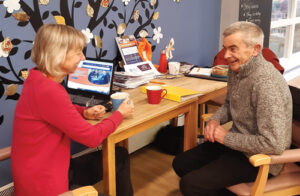 Although it can be rewarding, and deepen relationships, caring can also be extremely hard, and will often affect someone practically, socially, emotionally, and financially.
Although it can be rewarding, and deepen relationships, caring can also be extremely hard, and will often affect someone practically, socially, emotionally, and financially.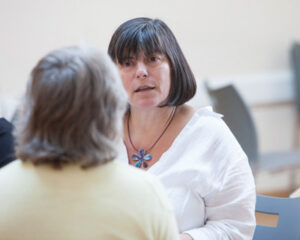 Your employment rights
Your employment rights

 It starts the minute you arrive at the venue. The staff and volunteers all have bright eyes and wide grins that actually look genuine, the café or kiosk is serving Christmas-themed cookies and cupcakes and Christmas pudding flavoured ice-cream. The bar is serving large glasses of everything, including delicious mulled wine. The smell of excited anticipation is everywhere.
It starts the minute you arrive at the venue. The staff and volunteers all have bright eyes and wide grins that actually look genuine, the café or kiosk is serving Christmas-themed cookies and cupcakes and Christmas pudding flavoured ice-cream. The bar is serving large glasses of everything, including delicious mulled wine. The smell of excited anticipation is everywhere.

 Empowerment has the potential to liberate young people from these expectations and pressures. Empowerment enables young people to find their voice, their place in this world and feel important and heard. Empowerment is the enemy of insecurity, and through engaging with activities and communities that make young people feel empowered, they grow in a confidence that can be applied to every aspect of their lives.
Empowerment has the potential to liberate young people from these expectations and pressures. Empowerment enables young people to find their voice, their place in this world and feel important and heard. Empowerment is the enemy of insecurity, and through engaging with activities and communities that make young people feel empowered, they grow in a confidence that can be applied to every aspect of their lives.